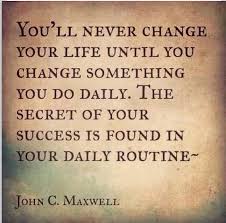"We are what we repeatedly do. Excellence, then, is not an act, but a habit." - Aristotle
This covers some ground we have been over before, but it bears repeating. Excellent blog post by Chad Longworth.
from clongworth.com
http://www.clongworth.com/blogs/coaching-development/33346500-failed-results-vs-failed-processes
FAILED RESULTS VS. FAILED PROCESSES
Posted by Chad Longworth on Jun 05, 2015
Everyday I talk to players, I hear the horror stories of their coaches kicking and beating them over failed results. I use those terms loosley but you get the idea. Strikeouts, walks, errors. All things part of the a game that no one has ever been able to perfect. The follow story is a study done by Phycologist Martin Seligman about a concept called learned helplessness.

In 1965, Martin Seligman and his colleagues were doing research on classical conditioning, or the process by which an animal or human associates one thing with another. In the case of Seligman's experiment, he would ring a bell and then give a light shock to a dog. After a number of times, the dog reacted to the shock even before it happened: as soon as the dog heard the bell, he reacted as though he'd already been shocked.
But then something unexpected happened. Seligman put each dog into a large crate that was divided down the middle with a low fence. The dog could see and jump over the fence if necessary. The floor on one side of the fence was electrified, but not on the other side of the fence. Seligman put the dog on the electrified side and administered a light shock. He expected the dog to jump to the non-shocking side of the fence.
Instead, the dogs lay down. It was as though they'd learned from the first part of the experiment that there was nothing they could do to avoid the shocks, so they gave up in the second part of the experiment.
Seligman described their condition as learned helplessness, or not trying to get out of a negative situation because the past has taught you that you are helpless.
After the dogs didn't jump the fence to escape the shock, Seligman tried the second part of his experiment on dogs that had not been through the classical conditioning part of the experiment. The dogs that had not been previously exposed to shocks quickly jumped over the fence to escape the shocks. This told Seligman that the dogs who lay down and acted helpless had actually learned that helplessness from the first part of his experiment.
(http://study.com/academy/lesson/how-seligmans-learned-helplessness-theory-applies-to-human-depression-and-stress.html)
(http://study.com/academy/lesson/how-seligmans-learned-helplessness-theory-applies-to-human-depression-and-stress.html)
I understand the importance of discipline. But don't mistake yelling and screaming for discipline. The real issue is failed processes and, that, you can fix with some humility. If you don't before long your dogs are gonna lay down helpless.
Sent from my iPhone

No comments:
Post a Comment